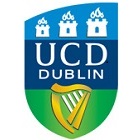- News and articles
- Find usIDP AustraliaIDP BahrainIDP BangladeshIDP CambodiaIDP CanadaIDP ChinaIDP EgyptIDP GhanaIDP Hong KongIDP IndiaIDP IndonesiaIDP IranIDP JordanIDP KenyaIDP KoreaIDP KuwaitIDP LebanonIDP MalaysiaIDP MauritiusIDP Middle EastIDP NepalIDP New ZealandIDP NigeriaIDP OmanIDP PakistanIDP PhilippinesIDP Saudi ArabiaIDP SingaporeIDP Sri LankaIDP Taiwan, ChinaIDP ThailandIDP TurkeyIDP UAEIDP VietnamIDP Corporate
- Social
- English
- Where we operate
- Courses
- Scholarships
- IELTS
- About IDP
- Student Essentials
- News and articles
- Find us
- Find us
- Find nearest IDP offices
- IDP Australia
- IDP Bahrain
- IDP Bangladesh
- IDP Cambodia
- IDP Canada
- IDP China
- IDP Egypt
- IDP Ghana
- IDP Hong Kong
- IDP India
- IDP Indonesia
- IDP Iran
- IDP Jordan
- IDP Kenya
- IDP Korea
- IDP Kuwait
- IDP Lebanon
- IDP Malaysia
- IDP Mauritius
- IDP Middle East
- IDP Nepal
- IDP New Zealand
- IDP Nigeria
- IDP Oman
- IDP Pakistan
- IDP Philippines
- IDP Saudi Arabia
- IDP Singapore
- IDP Sri Lanka
- IDP Taiwan, China
- IDP Thailand
- IDP Turkey
- IDP UAE
- IDP Vietnam
- IDP Corporate
- Social
- Language Switcher
- IDP Education /
- Colleges and Universities /
- Ireland /
- University College Dublin /
- Doctor of Philosophy in Mod...


Location
Ireland
Qualification
Ph.D.
Fees
EUR13730
(2025)
Duration
3 Year(s)
Next intake
19 May 2025
Entry Score
7.0
IELTSCourse info
The PhD dissertation comprises original research in the student's choice of research area in Modern Languages, as represented by staff within UCD. Modern Languages research specialisms and interests may be consulted on individual subject contact pages and researhc profiles. These specialisms include, but are not limited to, literature (early modern to contemporary), history of ideas, cultural studies, film studies, literary theory, translation, transnationalism, cultural theory, sociolinguistics and much more. Our language sections work with, and research through, the following world languages and their connected cultures: French, German, Italian, Portuguese, Spanish. Interdisciplinary and transdisciplinary projects are particularly welcome and PhD theses may involve UCD co-supervisors from another UCD School or College.
Everyone has a different reason for embarking on a PhD in Modern Languages. For many, it starts out as a challenge and is sparked by a passion. It is essential to do a PhD on a topic that is of deep interest to you personally, as a human being. Being deeply curious and passionate about your topic will make the four years of serious application fascinating, and you will complete a more successful thesis. During your PhD programme, you will take on board the wisdom and experience of specialists already working in the field. Most PhD students become complete experts in their subject area and maintain this passion throughout their lives, regardless of future occupation. In our School, we also explore professors motivation for and experience of doing their own PhD during our series of Very Short Talks, in which staff share their own PhD trajectory with current students. Every story, everyone's motivation, and every thesis is entirely unique.
- Scholarships View all scholarships
- Internships
Course fees are indicative and should be used as a guide. to get an accurate price.
Duration: 3 Year(s)
Fees: EUR13730
| Intake | Location |
|---|---|
| Summer (May), 2026 | Belfield |
| Spring (January), 2026 | Belfield |
| Summer (May), 2025 | Belfield |
| Summer (May), 2027 | Belfield |
| Autumn (September), 2025 | Belfield |
| Autumn (September), 2026 | Belfield |
| Spring (January), 2027 | Belfield |
Entry requirements for University College Dublin
Application Deadline
The application deadline isn't available Speak to an IDP counsellor for more detailed information
Further information
If you aren't eligible for the above entry requirements, you might ant to explore pathway options at University College Dublin. If you want to find out more, speak to our counsellors.
THE World Ranking
201st / 1250
THE World RankingWhat our students think
We’ve haven’t received any reviews for this institution yet.
Recommended for you
- THE World Ranking:201
- Ph.D.
- Belfield , Ireland
- Next intake:05/2025
- Entry Score: IELTS 6.5
- EUR13080 (2025)
- THE World Ranking:201
- Ph.D.
- Belfield , Ireland
- Next intake:05/2025
- Entry Score: IELTS 6.5
- EUR13730 (2025)
- THE World Ranking:201
- Ph.D.
- Belfield , Ireland
- Next intake:05/2025
- Entry Score: IELTS 6.5
- EUR13730 (2025)
- THE World Ranking:351
- Ph.D.
- CORK , Ireland
- Next intake:07/2025
- Entry Score: IELTS 6.5
- EUR13000 (2025)
- THE World Ranking:139
- Ph.D.
- Dublin 2 , Ireland
- Next intake:09/2025
- Entry Score: IELTS 6.5
- EUR11890 (2025)
- THE World Ranking:139
- Ph.D.
- Dublin 2 , Ireland
- Next intake:09/2025
- Entry Score: IELTS 6.5
- EUR11890 (2025)
- THE World Ranking:139
- Ph.D.
- Dublin 2 , Ireland
- Next intake:09/2025
- Entry Score: IELTS 6.5
- EUR11890 (2025)
- THE World Ranking:139
- Ph.D.
- Dublin 2 , Ireland
- Next intake:09/2025
- Entry Score: IELTS 6.5
- EUR11890 (2025)
Your action plan
Step 1
Shortlist your courses
Choose the best three courses you’re most likely to pursue.
Step 2
Check your eligibility
Get an instant in-principle offer for courses with the IDP FastLane tag.
Step 3
Apply through IDP Live
Fill out the form once and use it to apply to multiple courses.
How does IDP FastLane work?
With the FastLane 'Offer in Principle', you'll know in minutes if you'll be accepted!
Select an institution and course
Create your academic profile
Submit your application for an 'Offer in Principle'
Your chosen institution(s) will send you a decision in minutes!
Get ready to apply with an expert counsellor




